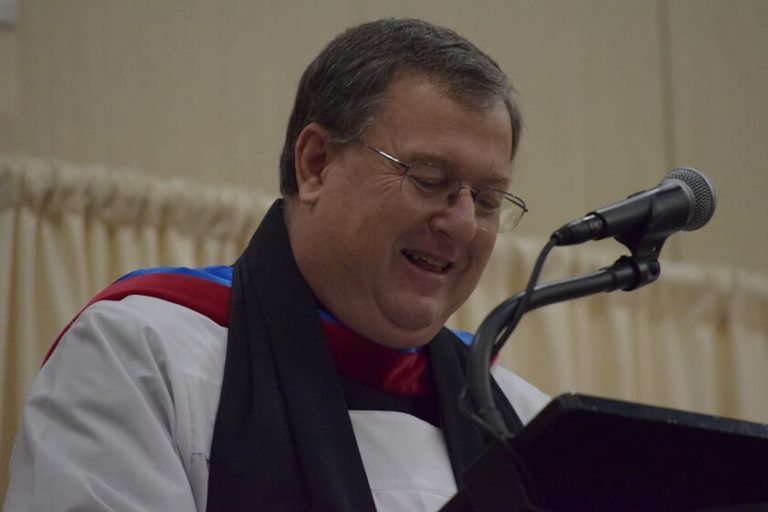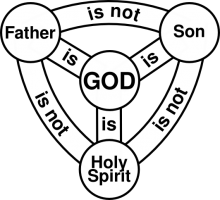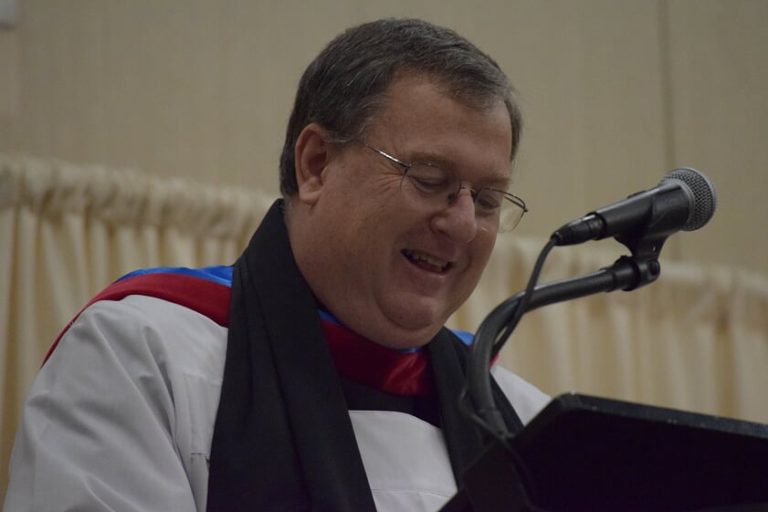Jesus, Universorum Rege
Sermon Preached for Christ the King Sunday (the Last Sunday in October) by Fr. Allen
“We give thanks unto the Father, which hath… translated us into the kingdom of his dear Son.” In the Name of the Father, and of the Son, and of the Holy Ghost. Amen.
In just four weeks, our Church Calendar will start over and we will read Jeremiah’s prophecy: “Behold, the days come, saith the Lord, that I will raise unto David a righteous Branch, and a King shall reign and prosper, and shall execute judgment and justice in the earth” (23:5). But today, we celebrate the reality of Jesus being that prophesied king. When we speak of Jesus as king, we are emphasizing His active rule over a specific kingdom, and that kingdom, put most simply, is everything under His effective will. And to say He is our king, we are saying that we have placed all of our faculties under His will and rule.
Now it might seem strange to celebrate Jesus’ kingship by having a Gospel Reading about the day of His crucifixion, but this is because we have overlooked one key aspect of the Cross’ significance. For many of us, we have only been told about how the Cross is where our Lord died for our sins, which is true, but it is also the throne upon which He was coronated King. Like the Ark of the Covenant, it is both altar and throne, mercy-seat and seat of power.
This is largely why the life of Jesus is recorded for us in the genre of “gospel.” As you may recall, the literary genre of “gospel,” was used to make proclamations about what the king had accomplished on behalf of his subjects (such as in the Priene Calendar Inscription about Caesar Augustus where his birthday was proclaimed to be the “beginning of the Gospel”). In the case of our New Testament Gospels, they are proclamations about how, King Jesus has brought the reign of God into our world through his life, death, and resurrection from the dead.
Like Israelite Kings of old, the Gospels show Jesus undergoing a tripartite process of designation, demonstration, and confirmation. We are shown how, at His baptism, Jesus was first anointed and designated as a potential leader by a prophet inaugurating Him and beginning the process of his accession to the throne; then, following that, He demonstrated His worthiness to lead by His feat against the prince of darkness, other demons, nature, sickness, and even death; and finally He was revealed as the king at the coronation, which was nothing other than His parodic exaltation upon the cross. This is why the Gospels, like in our reading this morning, do not refer to Jesus as “king” until the cross: “Are you a king? You say that I am.”
How does Pilate say Jesus was a King? By going through with the trial and execution. Jesus’ trial was being held in response to Him claiming to “sit at the right hand of power” as the Son of Man from our Old Testament Reading (Mrk.14:62; Dan.7:9-14); He was then clothed in a royal robe (Mrk.15:17); He was mockingly bowed before and worshipped (Mrk.15:19); and He was crowned with a crown of thorns (Mrk.15:17). By this, He had indeed been made and proclaimed, “king of the Jews.” Then upon being crowned king of the Jews, He proceeded to become king of all nations by defeating death and ascending to reign as king in heaven.
This is who Jesus is today – the Universorum Rege – the King of the Universe. Now, of course, we wonder at times, if He truly is king why are things so bad? Well, the primary way He governs from heaven is by winning the hearts of His subjects before He demands their allegiance, and accepts their allegiance before He demands their will.
So, no matter how things may appear, we realize what’s going on: that in Christ the King, God has so ordered the world in such a way that every generation is being given the opportunity to grow up, to mature, and be formed into His likeness from the inside out. If a person or generation could just get all the answers right, write them down, and then give them to us or someone else, all people would ever do would be to go look them up, and they wouldn’t ever grow up themselves. Even in His present Kingship, our Jesus continues to serve, as He raises up his brethren (you and me) into maturity to be able to rule and reign with him eternally (cf.Heb.2:11; 2Tim.2:11-12).
And in the end, when everyone small and great stands before His undeniable throne (Rev.21:11-15), they will give an account and answer for all they did while in the flesh (2Cor.5:10). – either done in submission to Him as King, or in rebellion against His will and rule. Then all wrongs will be righted, and all evils will be shown to work out for our ultimate good (Rom.8:28). Let us pledge our faithful allegiance to Him now, so that we might be a part of the former group in that day. For “the hour cometh, and now is, when the true worshippers shall worship the Father in Spirit and in truth: for the Father seekers such to worship him.” Amen.
For deeper study, see:
W. Brian Shelton, “An Ancient Israelite Pattern of Kingly Accession in the Life of Christ,” TRINJ 25Ns (2004) pp.61-73.
Joel Marcus, “Crucifixion as Parodic Exaltation,” JBL 125, no.1 (2006) pp.73-87.
Pope Pius XI’s Encyclical on the Necessity of the Feast of Christ the King (https://www.vatican.va/content/pius-xi/en/encyclicals/documents/hf_p-xi_enc_11121925_quas-primas.html).




